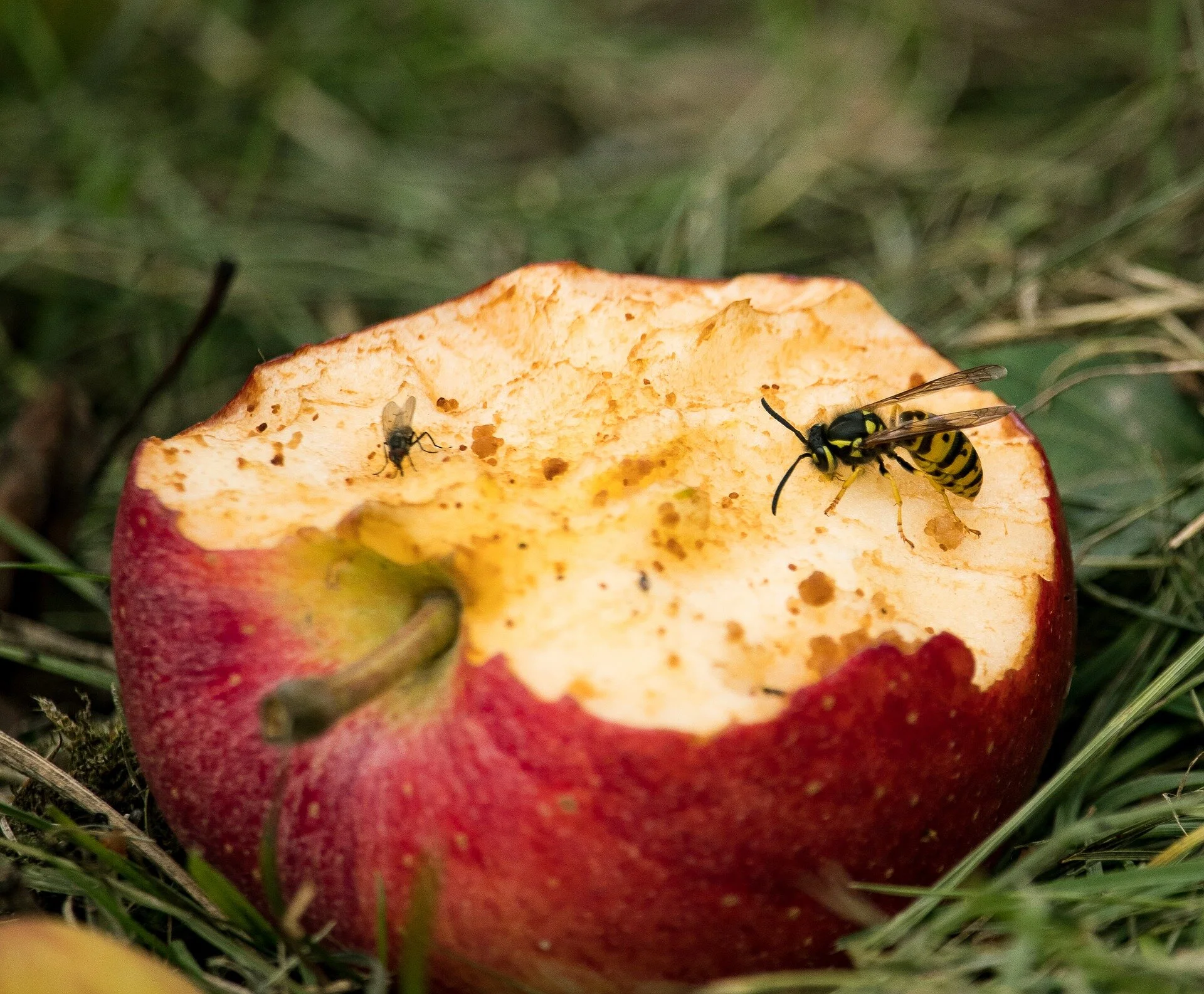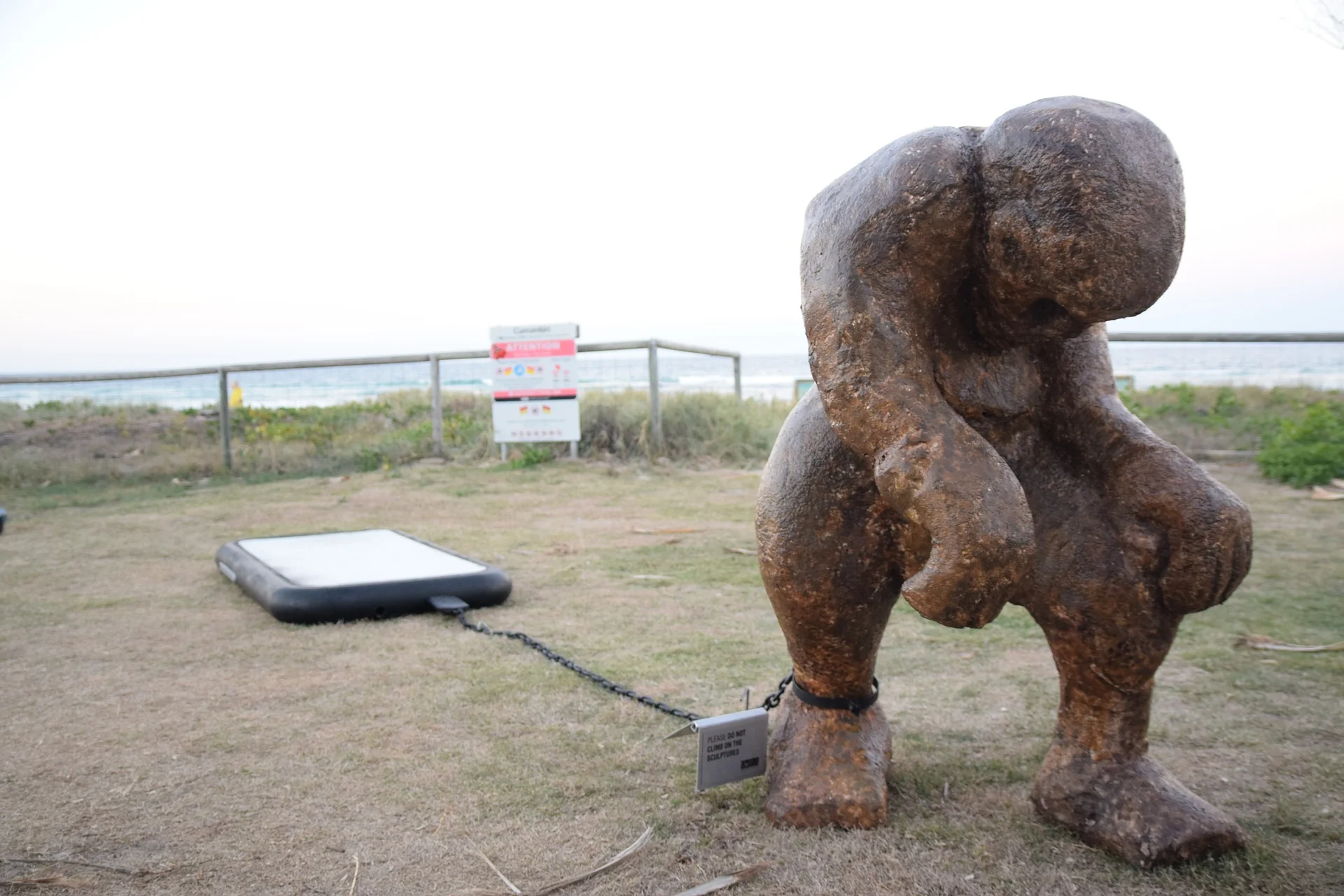Faith Inspiration - Oswald Chambers - Our Great Capacity for God - Part 2: Sin's Beginning
Last month we started a deeper dive into this quote from Oswald Chamber’s My Utmost for His Highest.
“We are designed with a great capacity for God, but sin, our own individuality, and wrong thinking keep us from getting to Him. God delivers us from sin——we have to deliver ourselves from our individuality. This means offering our natural life to God and sacrificing it to Him, so He may transform it into spiritual life through our obedience...We must see to it that we aid and assist God, and not stand against Him...we must discipline ourselves. God will not bring our ‘arguments...and every thought into captivity to the obedience of Christ’ (2 Corinthians 10:5)——we have to do it.””
I discussed what it might mean for us to have a great capacity for God. You can see that post here. This week we are going to start looking at the three things keeping us from experiencing this great capacity for God. The first of these deterrents is sin. Let’s do a quick Biblical review of sin’s origins.
Image by Petra Ohmer from Pixabay
Once again, we are taken to the beginning. In the book of Genesis we see the story of the creation of the world, including all that is living from plants and animals, to fish and humans. We see that God placed Adam, the first man, and his wife, Eve in a beautiful garden called Eden. He gave them everything they needed and they could eat from any tree in the garden but one, the tree of the knowledge of good and evil.
“15 Then the Lord God took the man and put him into the garden of Eden to cultivate it and keep it.
16 The Lord God commanded the man, saying, “From any tree of the garden you may eat freely;
17 but from the tree of the knowledge of good and evil you shall not eat, for in the day that you eat from it you will surely die.””
All we need to do is read the following chapter to see that Adam and Eve chose to do exactly what God told them not to do and from that tree they ate. Of course, they were manipulated by God’s enemy, Satan, who was disguised as a beautiful serpent.
“1 Now the serpent was more crafty than any beast of the field which the Lord God had made. And he said to the woman, “Indeed, has God said, ‘You shall not eat from any tree of the garden’?”
2 The woman said to the serpent, “From the fruit of the trees of the garden we may eat;
3 but from the fruit of the tree which is in the middle of the garden, God has said, ‘You shall not eat from it or touch it, or you will die.’”
4 The serpent said to the woman, “You surely will not die!
5 For God knows that in the day you eat from it your eyes will be opened, and you will be like God, knowing good and evil.”
6 When the woman saw that the tree was good for food, and that it was a delight to the eyes, and that the tree was desirable to make one wise, she took from its fruit and ate; and she gave also to her husband with her, and he ate.
7 Then the eyes of both of them were opened, and they knew that they were naked; and they sewed fig leaves together and made themselves loin coverings.”
We need to look at this passage and really understand how easily one wrong thought, one wrong choice led to the downfall of humanity. Let’s look at Satan’s tactics (and yes I have covered this before, but it is important), and look at Adam and Eve’s responses.
1 - Satan went to Eve first. We are not told where Adam was, but the serpent started with Eve. I don’t know why he approached her first. Perhaps he knew she was more easily persuaded by his charm and beauty.
2 - Satan immediately manipulates God’s words. He asks Eve, Did God say you couldn’t eat from the trees in the garden? I am assuming he already knew exactly what God had told the couple. He knew they could eat from all the trees except the tree of the knowledge of good and evil.
3 - Eve misquotes God. We can see in chapter 2 God told them if they ate of the tree they would surely die. He said nothing about them touching it. Eve adds the idea of physical touch also leading to death, as though that would seem more dramatic.
4 - Once again, Satan manipulates. “You surely will not die!” While we know it was not an immediate physical death, we also know eating from the tree of the knowledge of good and evil did lead to both an eventual physical and spiritual death; just a little detail the serpent left out.
Image by Alex Yomare from Pixabay
5 - Satan turns the screw tighter. “For God knows that in the day you eat from it your eyes will be opened, and you will be like God knowing good and evil.” Satan offered, not only the possibility of being like God, but he caused Eve to question whether God was trustworthy. Can’t you hear her thinking, “If God really loves us, why didn’t He tell us this from the start? Why is He withholding it from us?”
6 - Eve looked and desired. Instead of turning away from Satan and looking for Adam to seek his input, she looked at the tree and saw it was desirable for food, and a delight to look at. You can see the wheels spinning in her mind. She saw that it was beautiful, then she desired it, then she remembered what Satan had just told her, it would make her wise…so she took and ate.
7 - Eve took her husband down with her. We can’t say Eve did this with any bad intentions. She may have just been very excited and perhaps the fruit tasted divine and she wanted to share it with her beloved. Whatever her reasons for including her husband in this defiance of God’s command it lead to the fall of humanity from the grace of their loving Creator.
8 - Adam and Eve immediately experience shame and want to hide. The serpent was absolutely right about one thing, their eyes would be open and they would know good and evil. It would be interesting to hear their conversation as they suddenly came to the realization they were naked and as they sought to find leaves to cover themselves.
The reason I covered this in detail is to show you the progression that all sin takes and has taken from the very beginning.
1 - Satan finds us when we are alone and vulnerable. When do the temptations come in our lives? It is always when we are struggling and discouraged, and most often when we feel no one has our back. Sin will creep in when we feel alone, sad, angry, discouraged, overwhelmed, anxious, and not enough.
2 - Satan will manipulate God’s words. How often have you heard people say, “If God is good, why is this bad thing happening?” Or, “God must not really love me, or I wouldn’t be struggling.” Or, “Where was God when this terrible thing happened?” Satan takes the truth about our God: that He is good, that He loves us, or that is with us always, and turns it on its head. “God didn’t really say….”
Image by Fathromi Ramdlon from Pixabay
3 - Satan doesn’t just manipulate God’s words, he manipulates our circumstances and the voices we hear around us to reinforce the lies he has begun to feed us. God isn’t really loving if He condemns people to hell. God isn’t really good, just look at all the terrible things going on in the world. There is no such place as hell, we will all be in heaven one day. When we die we become our spirit animals and play happily in the clouds. I am sure you can list other thoughts and ideas you have heard.
If we do not know God’s word well, or we begin to question God’s love and authority, we will begin to question the authenticity of the Bible. I know many who were raised in the the church who grew up under the teaching of God’s word who now are questioning that it was actually inspired by God, and that the men who wrote it were just interjecting their own opinions and thoughts. It is not too far a leap to give up on the truth of the Word all together when going down that path.
4 - We no longer talk about sin. The word sin is no longer politically correct, or woke. This is exactly where our enemy wants us to be. Sin has gone into hiding, covering itself with the beauty of the world’s philosophies that everyone is okay and no one is bad.
Next month we will delve deeper into what the Bible says about sin, this obstacle that keeps us from our great capacity for God. I hope you will join me.
Let me know your thoughts by leaving me a comment. I appreciate all of your feedback.















